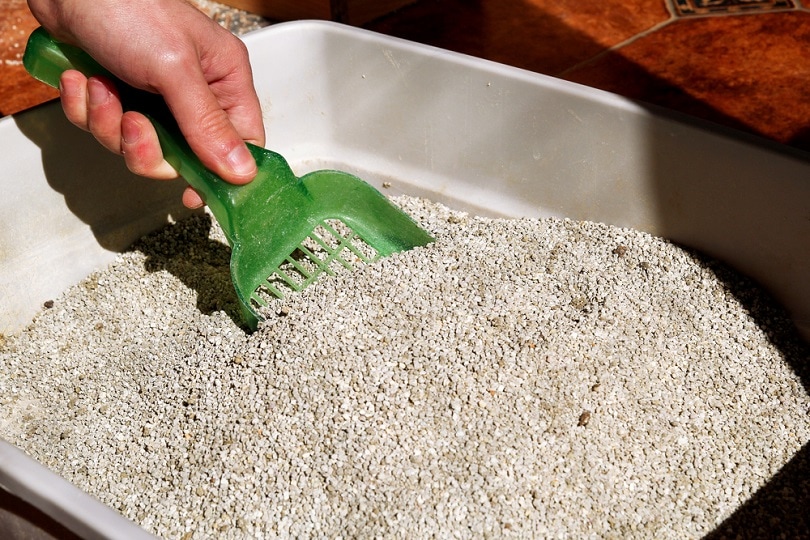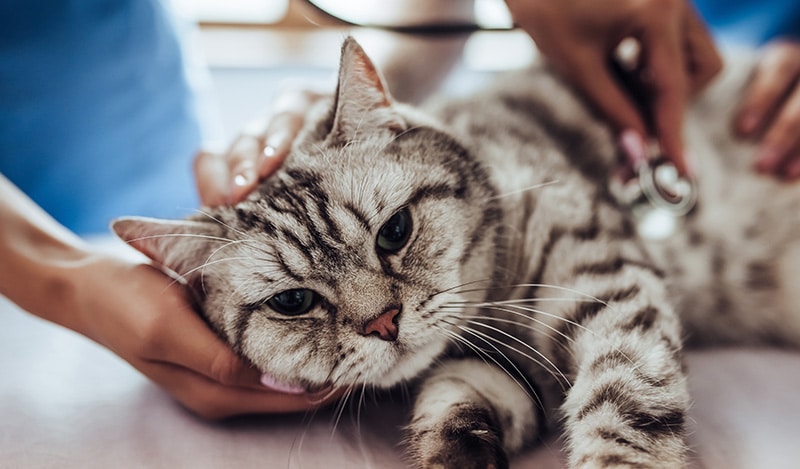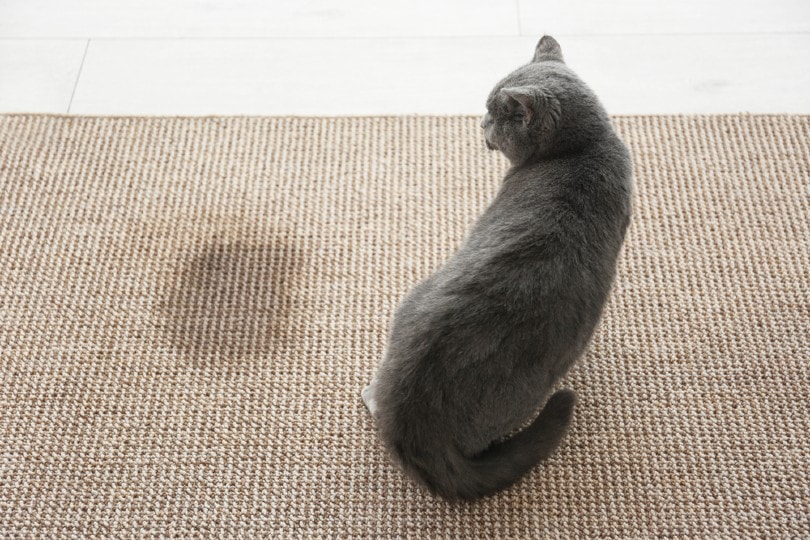Finding out that your cat has been urinating inappropriately in your house can be incredibly upsetting. It is even more distressing when you discover that your clothes are the target of this behavior. But fear not, your cat does not have a personal vendetta against you. There are several reasons why inappropriate elimination may occur, ranging from behavioral to medical problems. In this article, we will explore the common causes of this behavior and provide solutions to address it effectively.
The 5 Reasons Inappropriate Elimination Occurs
1. Poor Litter Box Conditions
Cats prefer having a clean location to eliminate, and when their litter box doesn’t meet their standards, they might find somewhere else to relieve themselves. It’s important to clean the litter box at least one to two times daily to ensure appropriate conditions. In multi-cat households, it is recommended to provide one more litter box than the number of cats in the household. Other factors that may contribute to aversions to the litter box include noise in the area or difficulties entering the litter box, such as a box that is too high for easy access. Additionally, some cats have a preference for specific litter types or covered/uncovered litter boxes.
How to Address Poor Litter Box Conditions:
- Ensure that the litter box is cleaned frequently.
- Provide multiple litter boxes in accessible locations throughout the house, avoiding busy or noisy areas.
- Make sure the litter boxes are big enough for your cat and offer a variety of litter types to find out what your cat prefers.
- Try both covered and uncovered litter boxes to see which your cat prefers.

Image Credit: Zoran Photographer, Shutterstock
2. Stress or Anxiety
Cats are naturally cautious animals, and they can experience stress or anxiety, which may lead to inappropriate urination. This behavior can be a way for cats to claim their territory. Cats may experience inter-cat conflicts, separation anxiety when an owner is away, or stress due to changes in their home environment. Even minor changes, like rearranging furniture, can trigger cats to urine-mark. Stress can also cause inflammation of the bladder, which requires veterinary treatment.
How to Address Stress or Anxiety:
- Provide your cat with a designated space where they can retreat from other cats or stressful stimuli.
- Use calming sprays or diffusers, like Feliway, to reduce your cat’s overall stress levels.
- Observe your cat closely for territorial behaviors and ensure that litter boxes are not placed near specific territories.
- Consider using anxiety medications or supplements under the guidance of a veterinarian.
3. Urinary Tract Concerns
Sometimes, inappropriate urination is a symptom of underlying health conditions that affect the urinary tract. Cats may urinate outside the litter box if they have cystitis (bladder inflammation), urinary tract infections, bladder stones, or urinary cancers. Additionally, certain disorders like diabetes, kidney disease, and an overactive thyroid gland can cause increased urination.
Treatment and Intervention:
- Visit a veterinarian to diagnose and treat the underlying medical condition.
- Reduce stress within the household to manage feline idiopathic cystitis, which is inflammation caused by stress.
- Administer appropriate antibiotics, pain relief, and ongoing veterinary treatment as necessary.

Image Credit: 4 PM production, Shutterstock
4. Arthritis
As cats age, they become more prone to arthritis, which can make posturing to urinate and accessing the litter box more painful. In such cases, cats may choose an area that is more easily accessible to empty their bladder.
Treatment and Intervention:
- If your cat shows signs of difficulty accessing the litter box, consider moving it to a more accessible location.
- Use a shallow litter pan instead of a deep one to reduce the need for jumping over high walls.
- Consult with a veterinarian to determine the most suitable arthritis interventions for your cat.
5. Hormonal Behavior
In intact (unaltered) cats, urine marking may occur as a signal for mating availability. This behavior resembles territorial marking and is more common in unaltered cats.
Treatment and Intervention:
- Once medical causes or inappropriate urination have been ruled out, it is recommended to have your cat spayed or neutered to reduce hormonal motivation for urine marking.

Image Credit: New Africa, Shutterstock
Veterinary Intervention
If your cat is urinating inappropriately, it is crucial to reach out to your veterinarian for assistance. The veterinarian will conduct a thorough examination and may recommend tests such as a urinalysis, bloodwork, or imaging to identify any underlying medical conditions. If no medical issues are found, the focus will shift to reducing stress and anxiety within the household. Environmental changes, pheromones, medications, probiotics, and enrichment activities are some of the strategies that can be employed to address the issue.
Setting Your Cat Up for Success
To assist with cleaning up any stains or odors caused by inappropriate elimination, we recommend using the Hepper Advanced Bio-Enzyme Pet Stain & Odor Eliminator Spray. This enzyme cleaner is highly effective, eliminating even the toughest stains and smells, leaving your home fresh and clean. Click here to learn more about this amazing product and get yourself a bottle.
In Summary
It is important to understand that your cat is not urinating outside the litter box to upset you. Inappropriate elimination can be a sign of stress, anxiety, or underlying medical conditions. Monitor your cat closely and seek professional help as soon as possible. Early intervention is crucial for the well-being of both you and your cat. Remember, if your cat is unable to urinate at any point, it is considered a medical emergency, and immediate veterinary care is necessary.
Frequently Asked Questions
[Include relevant frequently asked questions related to the topic.]
Conclusion
Understanding the reasons behind inappropriate urination is essential for addressing this behavior effectively. By providing a clean litter box, reducing stress, addressing medical concerns, and making necessary environmental adjustments, you can help your cat overcome this issue. Remember to consult with your veterinarian for guidance and to ensure the well-being of your beloved feline companion.
Related Reads:
- Cats Peeing in the Sink or Bath Tub? Ways to Stop It
- Reasons Your Cat is Peeing on the Couch & How to Stop It
Featured Image Credit: AJSTUDIO PHOTOGRAPHY, Shutterstock